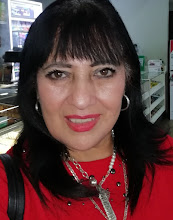Por Diego Urdaneta | AFP – mar, 16 abr 2013
La Comisión Interamericana de Derechos Humanos (CIDH) mantuvo en su "lista negra" a Venezuela, Cuba y Honduras, por serias violaciones a los derechos humanos, en su informe anual presentado este martes, que por primera vez en más de una década excluyó a Colombia.
Colombia, cuyo prolongado conflicto interno genera situaciones que preocupan a la CIDH, había sido incluida en ese apartado desde el 2000, pero este año fue retirada, luego de que aceptara una visita de la Comisión a fines del año pasado para evaluar de primera mano la realidad del país.
En 2012, la situación en Venezuela -incluida en la "lista negra" desde 2002- siguió siendo precaria, según la CIDH, por la "fragilidad" y "falta de independencia" del poder judicial, el "uso abusivo" del derecho penal y ataques contra defensores de derechos humanos.
La Comisión tomó nota de "agresiones reportadas contra medios y periodistas en Venezuela, así como por la falta de investigaciones y sanciones a los responsables", dentro de un contexto de restricciones a la libertad de expresión.
La inseguridad en Venezuela, con altas tasas de homicidios, es otro de los temas de inquietud para la CIDH, que consideró que las respuestas del gobierno han sido "insuficientes", al tiempo que criticó el uso de milicias para combatir el crimen, una tarea que a su juicio debe ser exclusiva de la policía.
Al contrario de lo que ocurrió el año pasado, cuando Caracas no dio respuesta, en esta ocasión sí envió observaciones al borrador del informe anual, se congratuló la CIDH, que reiteró su "disposición al diálogo" con el gobierno venezolano, que la acusa de ser parcial en su contra.
Venezuela le niega desde 2002 el permiso a la CIDH para que envíe una misión, alegando que reconoció el breve gobierno de facto durante el golpe de Estado de abril de ese año contra el presidente Hugo Chávez, lo que es refutado por la Comisión.
La situación en Cuba, donde por décadas ha habido "una situación permanente y sistemática de vulneración de los derechos humanos", no varió en 2012, según la CIDH, que denunció restricciones a los derechos políticos, de asociación, a la libertad de expresión y falta de elecciones, entre otros.
La Habana desconoce la jurisdicción de la CIDH, pero ésta la reivindica, ya que pese a no ser un miembro activo Cuba sigue perteneciendo a la OEA.
En cuanto a Honduras, la CIDH observó "asuntos estructurales en materia de justicia, seguridad, marginación y discriminación", que se volvieron más complejos desde el golpe de Estado de junio de 2009, cuyas repercusiones aún se sienten.
El presidente de la CIDH, el mexicano José de Jesús Orozco, dijo al presentar el informe en la OEA que el texto representa "el cierre de un ciclo", ya que es el último antes de empiecen a regir en agosto una serie de reformas de su funcionamiento, que implementa en respuesta a un proceso de evaluación a la que la organización regional la ha sometido desde hace casi dos años.
Orozco denunció una vez más la insuficiencia de los fondos que le otorga la OEA, ante la avalancha de casos que tiene que atender y el atraso procesal. "La escasez de recursos genera rezago y demora que producen zozobra para las víctimas", advirtió.
La CIDH, con un presupuesto de 9,5 millones de dólares, la mitad del cual es aportado por la OEA y el resto por donantes, ha señalado que para cumplir con sus atribuciones este año necesita como mínimo más de 20 millones de dólares.
El presidente de Colombia, Juan Manuel Santos (I), dialoga con el titular de la Corte Intermericana de Derechos Humanos, el peruano Diego García Sayan, durante una reunión celebrada el 18 de marzo de 2013 en Medellín, Colombia.


 Imprimir
Imprimir enviar
enviar

